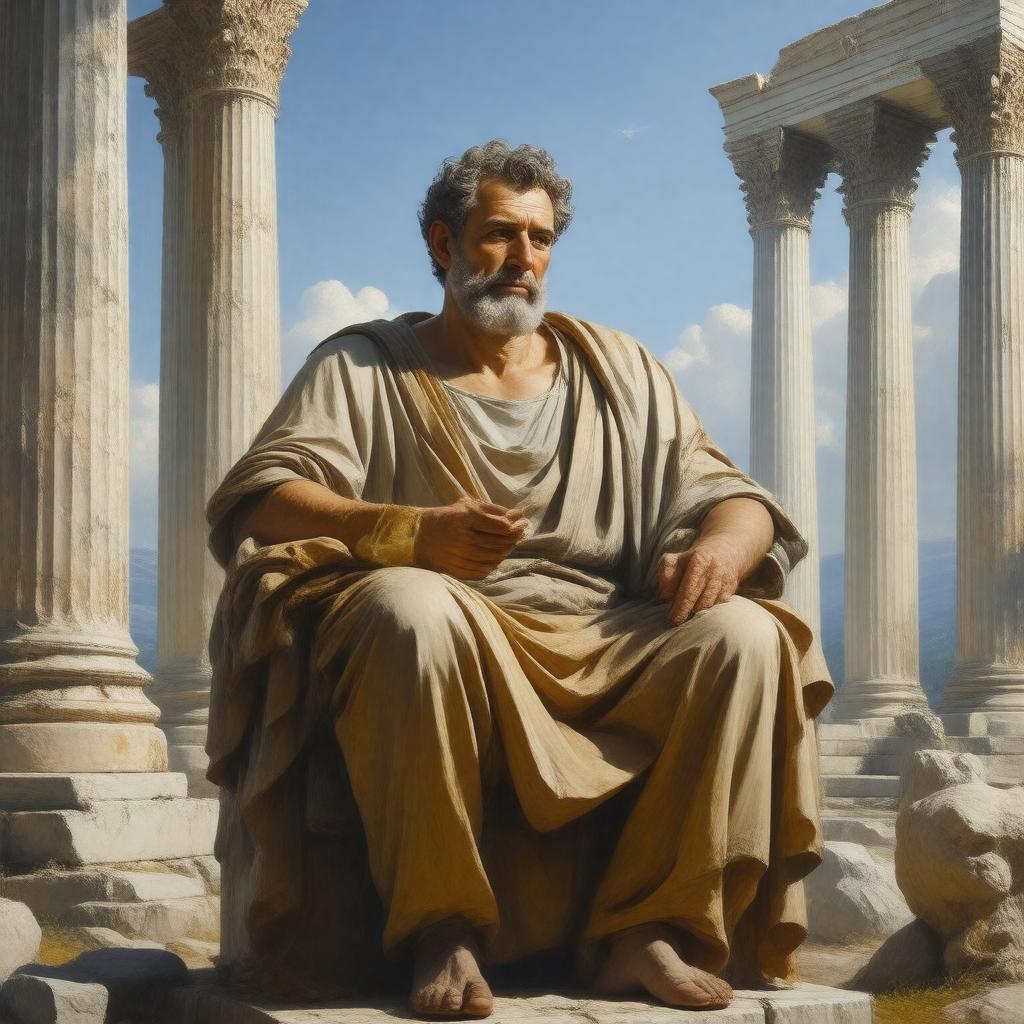Prompt
Generate an image of Parmenides, a male Ancient Greek philosopher from Elea, Velia, in the style of ancient Greek art, sitting on a stone chair, surrounded by ancient Greek architecture, lost in thought, with a scroll in his hand, representing his notable work "On Nature" and his philosophical ideas on the One, being, and the illusion of change, characteristic of the Eleatic school and Pre-Socratic philosophy.

